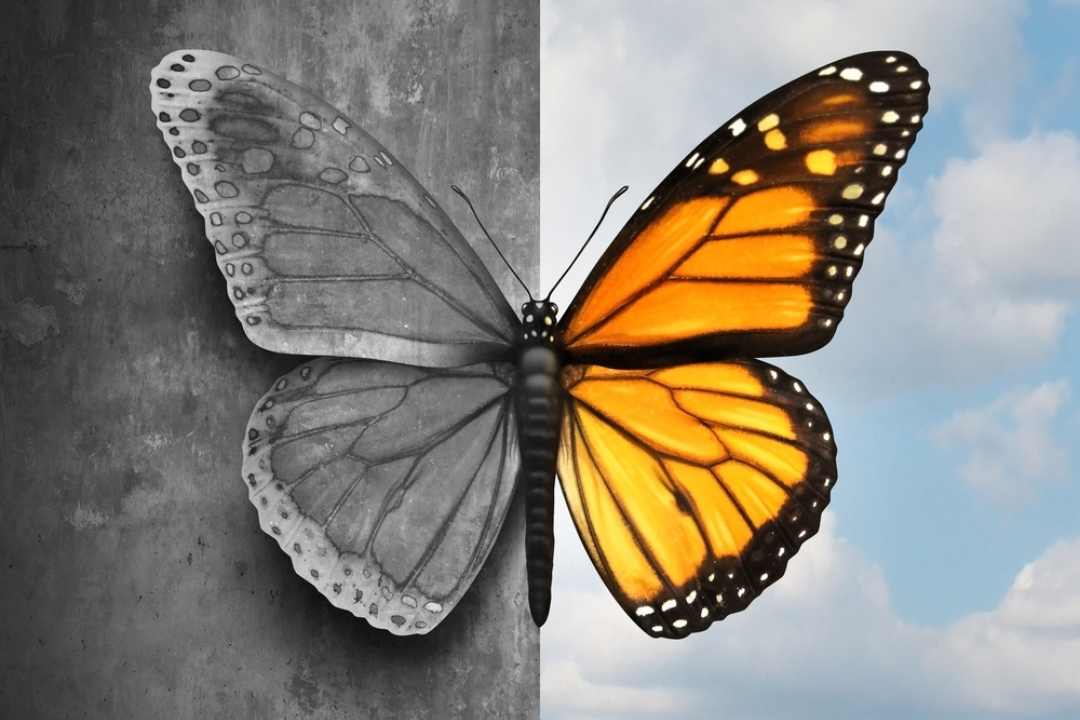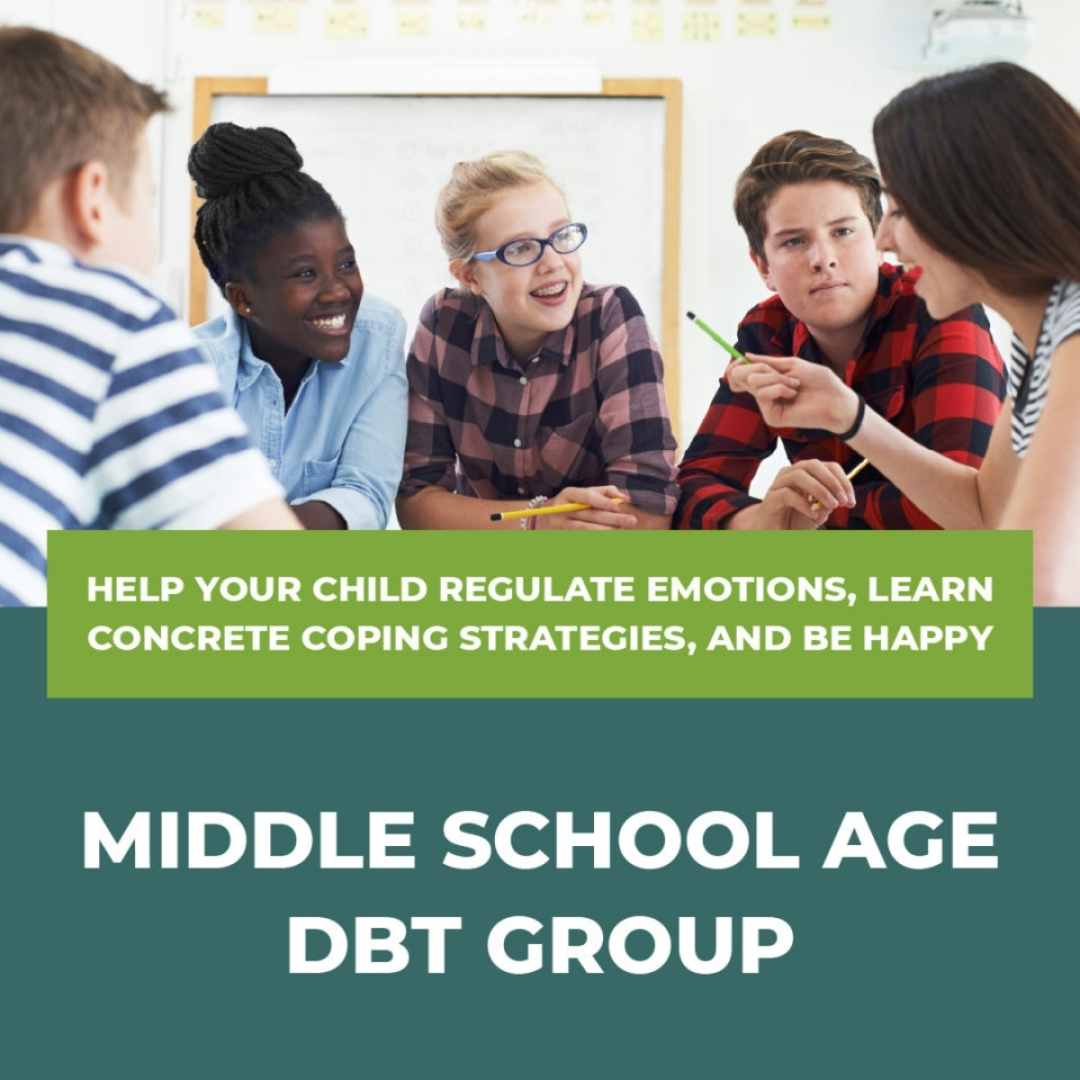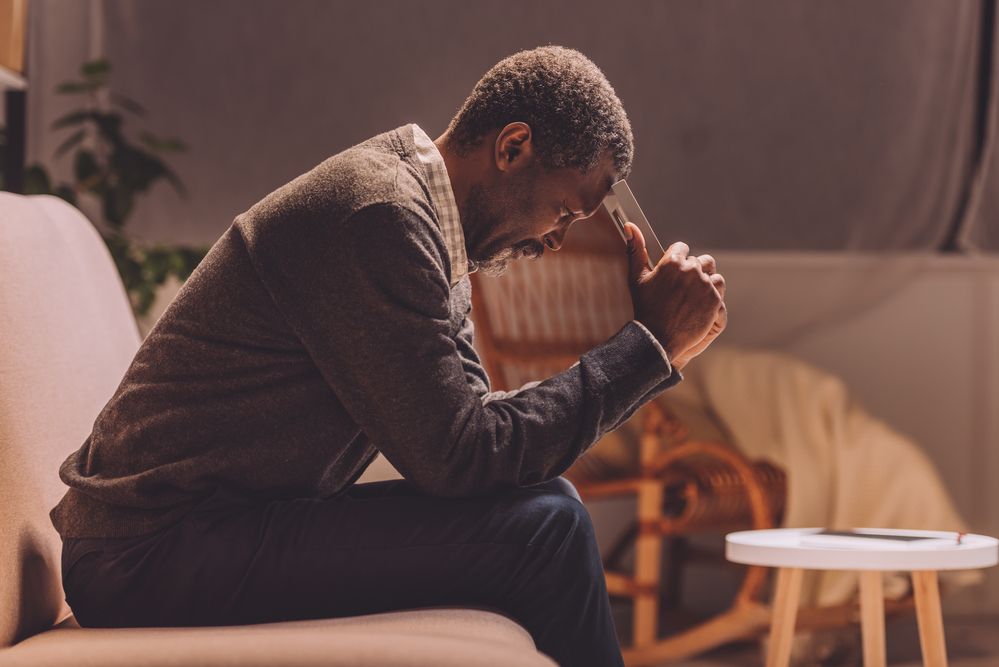May 27, 2020
Managing Your Mental Health in Times of Stress: COVID-19 Resources
Written by Rachel Eddins
Posted in Emotional & Mental Health and with tags: covid-19, stress management

The Impact of the Coronavirus on Mental Health in Children and Adults
For months now, we’ve been kept on the edges of our seats by a global pandemic.
Where is it striking now? Who is the most vulnerable? How can I stay safe?
In a way, the endless talk of flattening curves, impending vaccines, waves of infection, treatments, masks, recessions, and more has created its own global health crisis.
The impact of coronavirus on mental health, unfortunately, has been pushed to the background by concerns that may feel more urgent at the moment.
Still, the mental and emotional trauma is real, it’s growing, and it requires our attention in the here and now.
The Impact of the Coronavirus on the Mental Health of Adults
It’s bad enough to worry about getting physically ill while fretting over the financial impact of the rolling lockdowns. But there’s also an endless wave of paranoia and partisanship to factor in. All of this, of course, is beamed directly to our devices (and our minds) thanks to the 24/7 news cycle. The result of this stress overload can be:
- Disturbances in our sleeping or eating patterns
- A desire to withdraw from social interactions
- Self-medication through alcohol, tobacco, substance abuse, and disordered eating
- The exacerbation of existing physical health issues
- The exacerbation of existing mental health issues
- New mental health issues arising, e.g. anxiety disorders
Thanks to all the conflicting advice and conflicting perspectives, you may be feeling depressed and angry. You may be looking for someone to blame or scapegoat. And if you’re a parent, you’ve undoubtedly noticed the impact on your children.
The Impact of the Coronavirus on Mental Health in Children
For kids, some of the same outcomes affecting adults occur. But there are also unique factors to consider. Children may see the world with a simpler, less complicated mindset but they also thrive on structure clear guidance.
For many months now, that blueprint has been absent. As a result, they are missing out on:
- Valuable lessons and social time at school
- Family interactions
- The comfort of feeling safe in one’s own home or neighborhood and community
As of now, kids are suffering from fewer coronavirus infections. However, as leadership appears to be uncertain ad vacillating on what to do and how to proceed safely, one can make a strong argument that children are bearing the brunt of mental health concerns.
Read more: why getting outside is good for your kids
Talking with Your Children About Coronavirus
Our children are watching our responses to stress. We have an opportunity to model important lessons which will help our children deal with their own stress. It’s important to talk about our feelings and emotions.
Our children are watching. Let them know they are safe and loved. In order for their brain to grow, they need to hear this message and feel it.
Here are a few resources for kids and teens:
-
Handout for explaining Coronavirus to young kids and exploring feelings:
-
Video for explaining Cornovirus to young Kids:
Mental Health and Coronavirus
In times of stress, we can feel overwhelmed and experience strong emotional reactions. Managing your stress and mental health during the coronavirus is very important.
It can help you cope with overwhelming thoughts and feelings. If you have noticed any of the following symptoms increase, it may be time to reach out for support:
- Fear or worry that doesn’t let up.
- Changes in eating or sleeping patterns.
- Difficulty sleeping or concentrating.
- Increased substance use.
- Panic or anxiety attacks.
- Catastrophic thinking.
If you haven’t seen a therapist in a while and are experiencing stress, we are here for you. A single session might be enough to help you work through any stress or anxiety you might be experiencing right now.
We will continue to be available for online therapy sessions until it is safe to open our offices in person.
Self-Help Tips For Coping With Stress and Uncertainty
Tech and Media Breaks
People of all ages need some time away from their devices. Healing happens in real-time.
Mindfulness
Times like these can make us feel stuck in our regrets of the past and in our anxiety about the future. By rooting yourself (and your kids) in the present moment, you give yourself a chance to experience gratitude even in the toughest of times.
Do Not Isolate/Check-In With Others
It’s tempting to withdraw. Everyone needs some solitude but in stressful times, there is healing to be found in even the simplest interactions. Also, checking in on others will help soothe your own fears.
Talk About Your Feelings
There is no shame in feeling panicked, nervous, or upset. Express your emotions and make space for your children to do the same.
Basic Self-Care
There is never a bad time to show yourself some loving attention. The earlier you teach your children the importance of such care the better as well. The fundamentals of self-care include:
- Developing relaxation techniques
- Maintaining regular sleep patterns
- Practicing health eating habits
- Some form of daily physical activity
- Step back from social media and news outlets – pick a few news sources you trust and limit your time on them. Make sure you consume news no later than two hours prior to your bedtime to prevent it from interfering in your sleep.
- Use the opportunity in session to speak to your clinician about the balance between productive versus unproductive worry.
- Speak to your medical provider about ways to manage your personal risk.
- Balance the use of hand sanitizer with the use of lotion, disinfecting wipes, and disinfecting spray to minimize pain and dryness in hands.
- Reach out for more support if worry, anxiety or panic increase or feel overwhelming. Online therapy is easier and more comforting than you might expect.
- There is no right or wrong way to feel about COVID-19. If you have a low level of concern, you are not under-reacting; and, if you are concerned and taking precautions and/or delaying travel, you are not overreacting. If at any point between sessions you notice a level of fear or anxiety that is concerning to you or difficult to manage, please reach out – we are here to support you.
- No one can control what happens next. And that gives many of us a feeling of uncertainty that causes stress and anxiety. By focusing your attention on small daily actions, you can move forward even in the face of uncertainty. And in turn, that reduces stress and anxiety.
- Focus on what you can do and accept what you can’t change.
Read more: Strategies to Cope with Coronavirus Anxiety
Mental Health Impact of Social Distancing During Coronavirus
Psychologists’ research has found that during a period of social distancing, quarantine or isolation, you may experience:
Fear and anxiety
You may feel anxious or worried about yourself or your family members contracting COVID-19 or spreading it to others. It’s also normal to have concerns about obtaining food and personal supplies, taking time off work, or fulfilling family care obligations. Some people may have trouble sleeping or focusing on daily tasks.
Depression and boredom
A hiatus from work and other meaningful activities interrupts your daily routine and may result in feelings of sadness or low mood. Extended periods of time spent at home can also cause feelings of boredom and loneliness.
|
|
Anger, frustration or irritability
The loss of agency and personal freedom associated with isolation and quarantine can often feel frustrating. You may also experience anger or resentment toward those who have issued quarantine or isolation orders or if you feel you were exposed to the virus because of another person’s negligence.
Stigmatization
If you are sick or have been exposed to someone who has COVID-19, you may feel stigmatized by others who fear they will contract the illness if they interact with you.
How to Manage the Stress of COVID-19
Try this mantra: “I choose to focus on what I can control.”
Support Group to Help Support Your Mental Health During the Coronavirus
Coping During a Pandemic Support Group
Helpful Articles for Managing Your Mental Health in Times of Stress:
- How to Improve Your Sleep
- Stress Management Tips
- Grounding & Soothing Techniques to Cope with Difficult Emotions
- How to Reduce Stress in Children
- Tips for Worry
- Ways to Relax When You Have Anxiety
- Coping with an Anxiety Attack
Free Apps & Website Resources to Support Your Mental Health:
Headspace – Headspace is an excellent meditation app to help you calm your mind, get to sleep easier, focus, and relieve anxiety and stress. Headspace is offering a special collection of meditations free of charge during Covid-19.
Calm – another meditation app with free meditations available at this link.
Podcast: Jack Kornfield – How to Find Peace Amidst COVID-19; How to Cultivate Calm in Chaos
AllMentalHealth.org – resources for supporting your mental health during Covid-19.
Sanvello – free mental health app with peer support during covid-19 using cognitive-behavioral therapy tools.
Ginger – resources and exercises for staying grounded and managing mental health during covid-19.
Restore – Magellan’s digital sleep resource.
COVID Coach – the VA’s mental health app.
Find Your Own Essential Worker
Once you’ve identified the impact of coronavirus on mental health, it may be necessary to seek out one of our unsung essential workers: therapists. Even in the midst of a pandemic, you can benefit from counseling sessions via video chat. Whatever format you choose, counseling is an ideal approach for addressing the effect of coronavirus on mental health. For you or your child (or both), this time is an opportunity to explore patterns, habits, underlying factors, and new approaches. When surrounded by so much uncertainty, it can be a powerful step to focus on what is truly within your control.
With anxiety counseling, your therapist can help you with calming strategies to help with anxious thoughts and emotions during this strange time. Contact us to find out how to get started soon. You can also call to schedule an online appointment at 832-559-2622 or book an appointment online.
Manage Your Stress with a Therapist
Eddins Counseling Group, Houston, TX has many experienced therapists that help you manage stress or anxiety. Reach out for a consultation today by calling 832-559-2622 or book an appointment online.
Grounding & Self Soothing
Get instant access to your free ebook.
Why You Feel This Way
Get instant access to your free ebook.






















